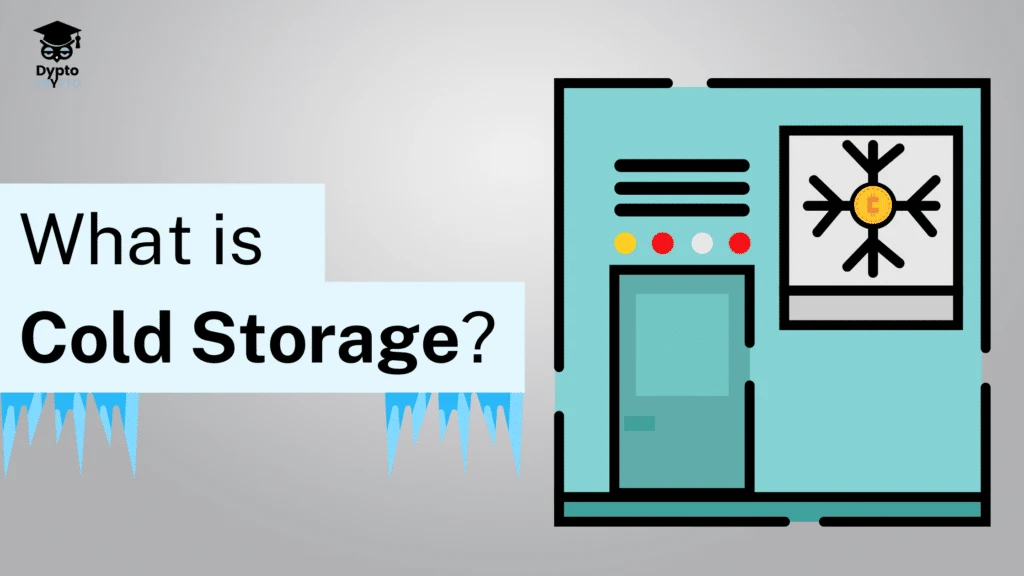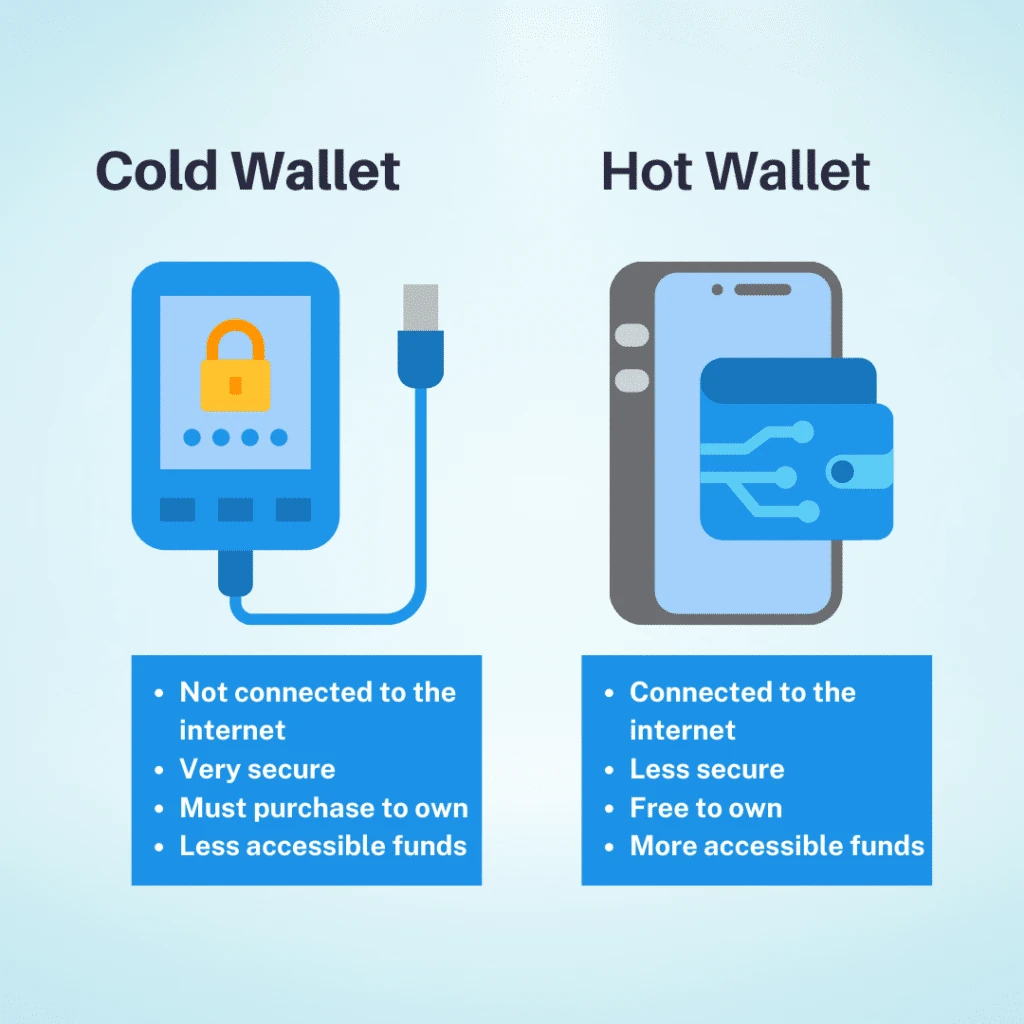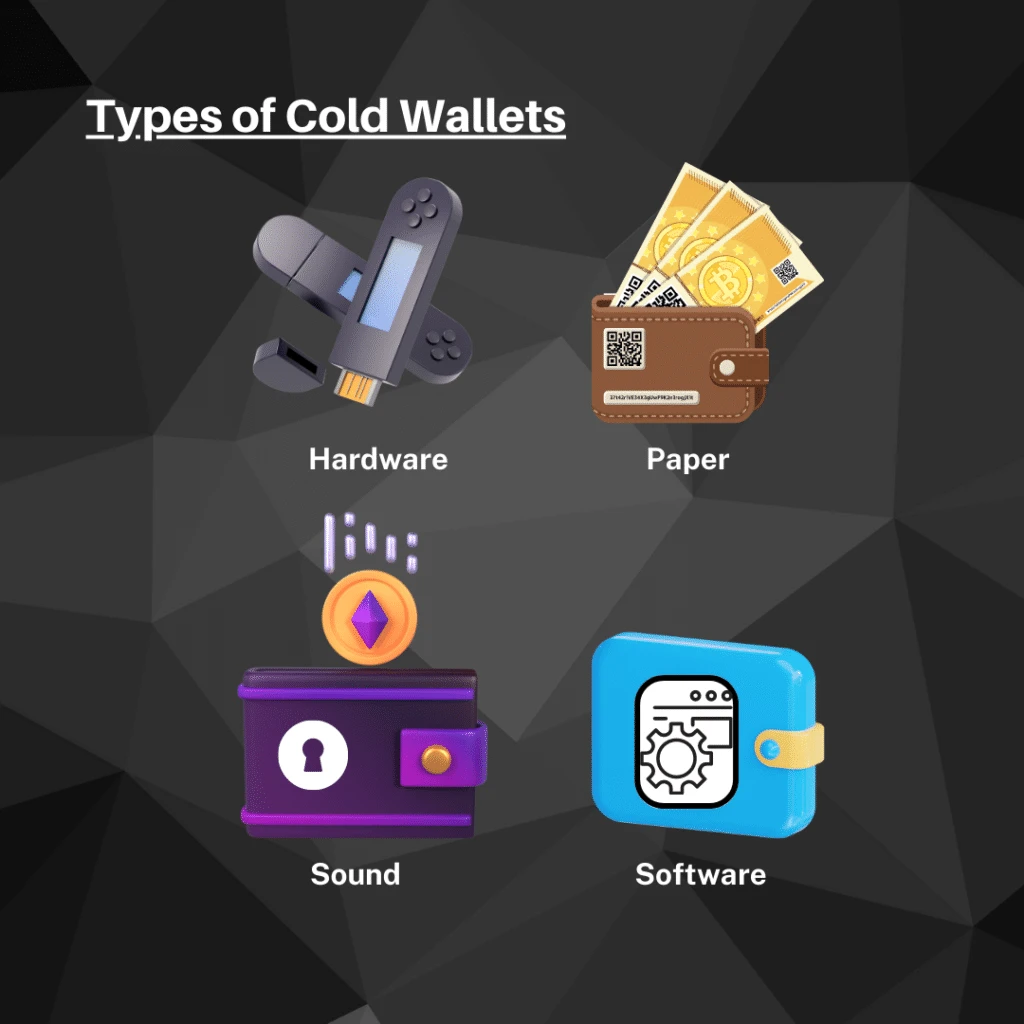What is Cold Storage?
Cold storage refers to storing cryptocurrencies on a device or software program that is not connected to the internet.
The Long Definition
Cold storage refers to keeping your cryptocurrencies in an offline wallet. Since the wallet is not connected to the internet, it avoids the vulnerabilities that come with being online. For this reason, cold wallets are considered to be more secure than hot wallets. However, the extra security comes at the expense of convenience.
There are different types of cold wallets. These include paper wallets, sound wallets, hardware wallets, and offline software wallets.

Understanding cold storage
A crypto wallet allows you to send, receive, and store cryptocurrencies. To function, it employs a cryptographic technique that uses two keys; a private key and a public key. The public key points to the wallet address on the blockchain.
On the other hand, the private key is the code that gives access to crypto stored in the wallet. Your wallet also uses it to sign transactions digitally. This usually happens before a transaction is added to the network. If you’re using a hot wallet, this step can be a vulnerability.
Why?
Hot wallets are always connected to the internet. So, the signing process takes place while they’re online. This can give a hacker monitoring the network a small window to see the key used to sign the transaction. They can then use this key to access and steal your crypto.
The only way to remove this vulnerability is to make sure that the private key stays offline at all times. That’s what cold storage does.
Cold storage keeps your wallet completely offline. So when you start a transaction, it gets signed without connecting to the internet. This ensures that nobody is able to access the private key by monitoring the network.
Therefore, cold wallets are generally more secure than hot wallets. But this security doesn’t come for free. Cold wallets cost up to $300, compared to most hot wallets which are free. They are also less convenient to use than hot wallets.

Types of cold storage wallets
Cold storage wallets come in many forms. The most common one is the hardware wallet. This is a physical device, like a thumb drive, that is specially designed to hold crypto. To use it, you just have to plug it into your computer. Examples include Trezor, Ledger, SecureX, and KeepKey.
There are also paper wallets. A paper wallet is a document with public and private keys written on it. It usually has a QR code that you scan before making transactions. Note that paper is fragile. Therefore, paper wallets need to be stored carefully.
The other type is a sound wallet. It is created by encrypting and recording a private key in sound files. The files are then stored in a vinyl disk (record) or compact disc (CD). During a transaction, the private key gets deciphered using a special application or device.
Lastly, there are offline software wallets. These are applications that you can download and install on your devices. They work by splitting themselves into two platforms; an offline wallet and an online one. The offline wallet contains the private keys while the online one has the public keys.
When sending or receiving crypto, the wallet generates an unsigned transaction. This transaction is moved to the offline wallet, which signs it with the private key. It is then moved back to the online wallet and broadcast to the network.

Why would I want cold storage?
Cold storage is a good option if you want to hold crypto in bulk. It’s also an excellent option if you will be holding it for a long time. If you will be making regular transactions, a hot wallet or a combination of both may be the best option.
What risks come with cold storage?
The biggest risk of cold storage is keeping the device safe. If you damage or misplace the storage medium you risk losing all your crypto. Thus, it’s your responsibility to take care of your device.
There is also a security risk that arises if you buy a second-hand hardware wallet. This is because the previous owner might have modified it in ways that make it vulnerable. Thus, you should buy your cold storage device directly from the manufacturer.
Conclusion
Cold storage refers to an offline wallet for keeping your cryptocurrency. The most common type is a hardware wallet. This kind of wallet is good because it is much more secure than a “hot” wallet.
While a cold wallet offers more security, it comes at the cost of convenience. So, cold wallets are great for storing crypto assets that you plan on holding for a long time. Since it is a physical device, it’s up to you to keep it safe.
